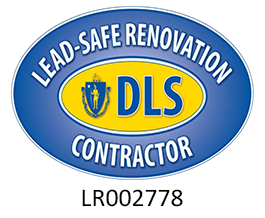Water heaters are often thought of as a set and forget appliance. Many homeowners don’t think that they regular maintenance like other appliances do. The fact is that with a little effort you can extend the life of your water heater and make sure that it will last as long as possible. Follow our simple maintenance tips below.
Remove Sediment Buildup to Extend the Life of Your Water Heater
Sediment that makes it way into the tanks is heavy and sinks to the bottom of your water heater. Routinely removing sediment is a great way to avoid rust and extend the life of your water heater. The process for removing sediment is pretty easy also and is something you can take care of quickly.
- Start by turning off the cold water supply to your water heater
- Run the hot water at any of the taps in your home. This helps relieve some of the pressure in the water heater tank and will make the water drain faster.
- Place a bucket underneath the drain valve at the base of the water heater tank and open the drain valve. Remember the water will be hot enough to burn you. Make sure to keep the water away from your skin.
- Let the water drain until there is no longer sediment coming out of the water heater.
- Close the valve. If the drain valve leaks then drain the tank completely and replace the drain valve
That’s all it takes to make your water heater tank sediment free! Perform regular sediment flushes at least once a year to extend the life of your water heater and make sure that you get the most out of your investment.
Extend the Life of Your Water Heater by Testing your Pressure Relief Valve
Your water heater’s pressure relief valve is a very important fail safe to prevent damage to your water heater. You should check your pressure relief valve regularly and if it is faulty replacing it can extened the life of water heater. Our simple steps will walk you through how to check your pressure relief valve and help any homeowner do it themselves.
- Place a bucket under the discharge pipe and slowly open your pressure relief valve. The water will be very hot so be careful to avoid burns
- If no water comes out of the discharge pipe then your pressure relief valve needs to be replaced
- Shut off the cold water supply and completely drain the water heater tank
- Unscrew the discharge pipe from the pressure relief valve
- Unscrew the pressure relief valve
- Wrap the threads of your new pressure relief valve with teflon tape. You should be able to get a new valve from a local hardware store.
- Screw the pressure relief valve into the water and reinstall the discharge pipe
- Turn the water supply back on and test the pressure relief valve once the tank is full.
That’s all there is to it. Now sit back and enjoy the fruits of your labor.
Anode Rods and How They Extend The Life of Your Water Heater
This one is gonna require a few more tools, but can really extend the life of your water heater if you catch it in time. The way anode rods work is a little complicated but the basics is that the anode rod protects your water heater from rust by sacrificing itself. Anode rods are made from metals that rust faster than the steel your water heater is made out of and corrode rather than the tank’s walls. Once the anode rod is completely corroded though, the walls of the tanks will start to rust and once the tanks starts to leak the unit will have to be replaced. Follow these simple steps to change the anode rod on your water heater and keep it protected from rust.
- Start by turning off the breaker for your water heater if it’s electric or turning the gas dial down to pilot.
- Turn off the cold water supply to the heater and drain approximately 2 gallons of water out of the tank
- Look for the nut on top of the water heater that is holding the rod in place. Sometimes it has a plastic cover.
- Using a socket and a ratchet or breaker bar unscrew the nut.
- Remove the old anode rod and install the new one. Make sure to put some pipe dope on the threads of the new rod.
- Tighten the nut and reinstall the cap if it has one
That’s all there is to it. If installed properly a new anode rod can help extend the life of your water heater by fighting rust which is a major killer of water heaters.
If you feel uncomfortable doing any of these repairs, call in the help of a professional. Your water heater is a major appliance in your home and one that you use daily. Keep it running well and keep your family happy.









